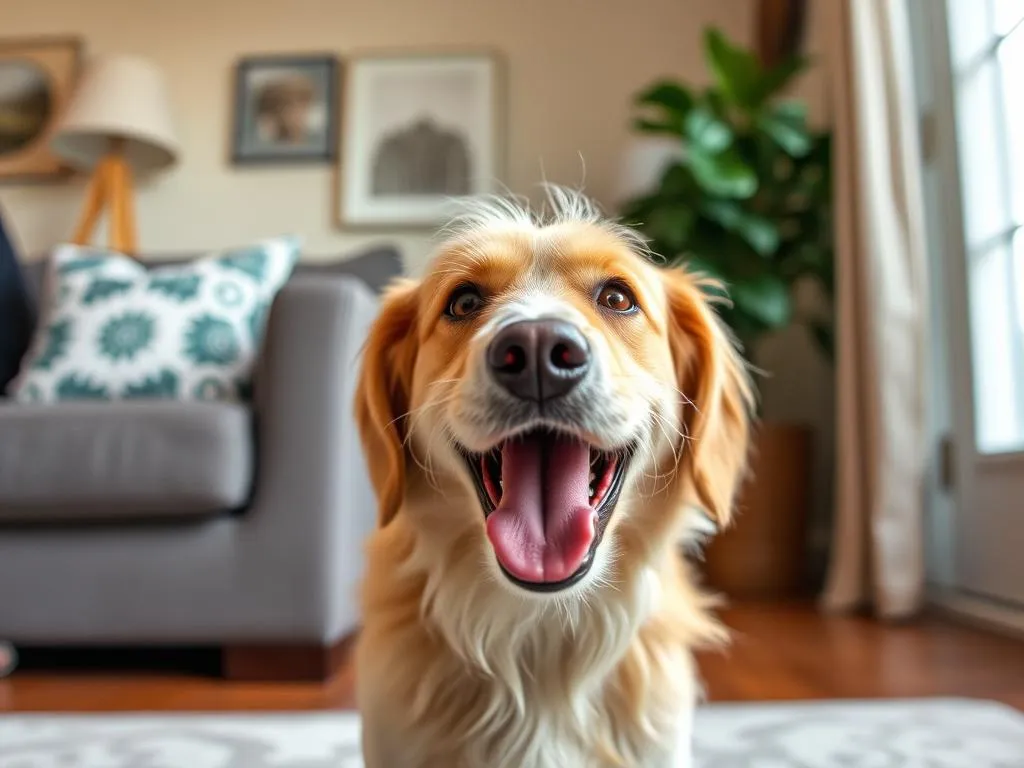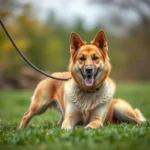
Overexcitement in dogs, especially when guests come over, is a common issue many pet owners face. It can manifest in various ways, like jumping, barking, and frenzied running around. Addressing this behavior is crucial for maintaining a harmonious home environment and ensuring that both your dog and your guests feel comfortable. This article delves into the causes of overexcitement, effective training techniques, and practical tips to manage your dog’s enthusiasm when visitors arrive.
Understanding Overexcitement in Dogs
Defining Overexcitement
Overexcitement in dogs is characterized by an overwhelming display of energy and enthusiasm, often resulting in behaviors that can be overwhelming for both the dog and the guests. Common signs include:
- Jumping: Dogs may leap onto guests in an attempt to greet them.
- Barking: Excessive barking can occur as a way to express excitement.
- Running Around: Dogs may dart around the room, unable to settle down.
Understanding these behaviors can help you identify when your dog is becoming overly excited and prepare to implement training techniques.
Reasons Why Dogs Get Overexcited
Several factors contribute to why dogs experience overexcitement:
- Instinctual Behavior: Dogs are pack animals, and when guests arrive, their instinct is to greet their “pack,” leading to heightened excitement.
- Lack of Training or Socialization: Many dogs have not been trained to behave appropriately around guests, which can lead to chaotic greetings.
- Previous Experiences: If guests have previously given your dog attention or treats, this can create a pattern where your dog anticipates a similar reaction, increasing their excitement.
The Impact of Overexcitement
Overexcitement can lead to several issues, including:
- Stress on the Dog and Household: An overly excited dog can create an uncomfortable atmosphere for both the pet and the guests.
- Potential Safety Risks: Jumping and barking can overwhelm guests, leading to potential accidents or injuries.
- Long-Term Behavioral Issues: If not addressed, overexcitement can evolve into more significant behavioral problems.
Preparing Your Dog for Guests
Establishing a Calm Environment
Creating a calm environment before guests arrive can significantly help in managing your dog’s excitement. Here are some tips:
- Designate a Space: Create a quiet area for your dog to retreat to when guests arrive. This could be a separate room or a cozy corner with their bed and toys.
- Calm Atmosphere: Play soft music or use calming scents (like lavender) to help soothe your dog before guests come over.
Prior Training Considerations
Before guests arrive, ensure that your dog is familiar with basic obedience commands. Teaching your dog commands like sit, stay, and down can help manage their behavior. Moreover, regular exercise before guests arrive can significantly reduce their pent-up energy. A good walk or play session can make your dog more relaxed when it’s time to greet visitors.
Socialization Techniques
Gradually exposing your dog to visitors in controlled settings can be beneficial. Here are some strategies:
- Controlled Introductions: Invite one or two calm friends over for a short visit to help your dog adjust to new people without overwhelming them.
- Positive Reinforcement: Use treats and praise to reward your dog for calm behavior during these introductions, reinforcing that calmness is desirable.
Training Techniques to Manage Overexcitement
Positive Reinforcement Training
One of the most effective ways to manage your dog’s overexcitement is through positive reinforcement. This method involves rewarding your dog for desired behaviors, making them more likely to repeat those behaviors in the future.
- Rewards: Use treats, praise, or toys as rewards for good behavior when guests arrive. This can help your dog associate calmness with positive outcomes.
Desensitization Approach
Desensitization involves gradually introducing your dog to the presence of guests in a way that doesn’t overwhelm them. Follow these steps:
- Controlled Exposure: Have a friend come over while you keep your dog on a leash.
- Distance: Start at a distance where your dog feels comfortable, gradually decreasing the distance as they become more relaxed.
- Reward Calmness: Each time your dog remains calm, reward them with treats and praise.
Alternative Behaviors to Encourage
Teaching your dog alternative behaviors can redirect their excitement into something more manageable. Here’s how to do this:
- Go to a Mat: Train your dog to go to a designated mat when guests arrive. Use treats and praise to reinforce this behavior.
- Settle Command: Teach your dog a “settle” command, encouraging them to lie down and relax when guests come over.
Controlling the Environment
Controlling your dog’s environment during guest arrivals can significantly help manage their excitement. Here are some strategies:
- Use Barriers: Gates or crates can help control your dog’s access to guests, giving them time to calm down before being introduced.
- Structured Arrivals: Plan guest arrivals during a time when your dog is less likely to be excited, such as after a long walk.
Dealing with Setbacks
Recognizing Triggers
To effectively manage your dog’s overexcitement, it’s essential to identify specific triggers that lead to their heightened state. Keep a log of your dog’s behavior when guests arrive to better understand what sets them off.
Adjusting Training Techniques
If certain training techniques are not yielding the desired results, don’t hesitate to adjust your approach. It’s crucial to be patient and consistent, as some dogs may take longer to learn than others.
Seeking Professional Help
If your dog’s excitement continues to be unmanageable, consider consulting a professional dog trainer or behaviorist. They can provide tailored guidance and support based on your dog’s specific needs. Additionally, group training classes can offer valuable socialization opportunities for your dog.
Long-Term Strategies for Success
Consistency is Key
Maintaining consistency in your training protocols is essential for long-term success. Daily practices that reinforce desired behavior can help ensure your dog learns to remain calm when guests arrive.
Regular Socialization Opportunities
Incorporating regular interactions with guests can reinforce training. Schedule playdates or invite friends over regularly to help your dog become accustomed to new people. Engaging in community activities, such as dog parks or training classes, can also provide additional socialization.
Monitoring Progress
Keep track of your dog’s improvements and setbacks in behavior. This can help you adjust techniques as necessary based on your dog’s response. Celebrate small victories, and remain patient as your dog learns to navigate their excitement.
Conclusion
Managing overexcitement in dogs, especially when guests come over, is vital for a well-behaved pet and a peaceful home environment. With patience, consistency, and the right training techniques, you can help your dog learn to greet guests calmly. Remember to celebrate progress, be persistent in your training efforts, and foster a loving environment where your dog feels secure and happy.
By understanding your dog’s behavior and implementing effective strategies, you can enjoy a more harmonious experience when welcoming guests into your home.









